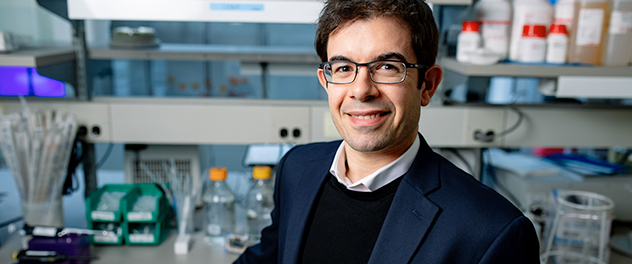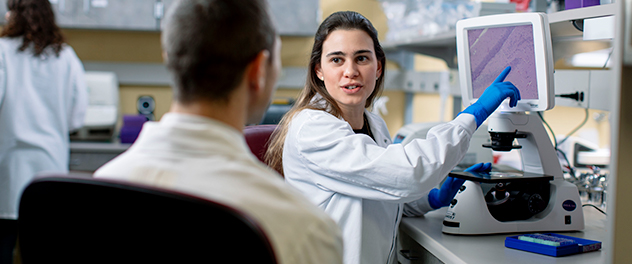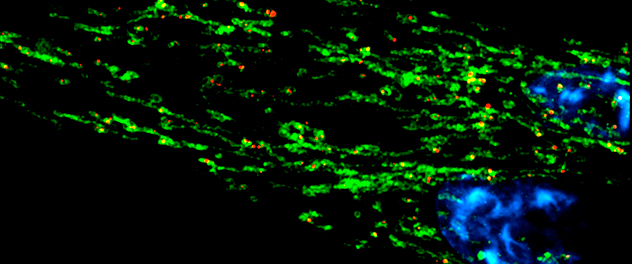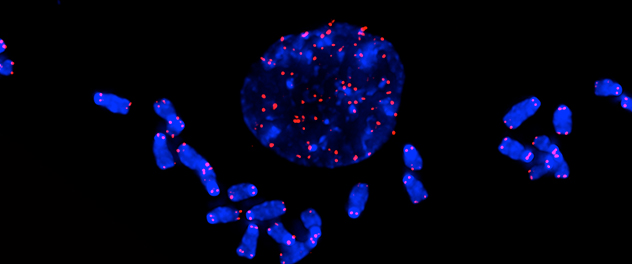-

Discovering ways to delay the onset of age-related diseases
Joao Passos, Ph.D., is developing new early and preventive interventions against age-associated chronic disease in his Cell and Molecular Aging Laboratory at Mayo Clinic.
-

Increasing the health span during aging
The Cell and Molecular Aging Lab at Mayo Clinic is discovering the mechanisms that mitochondria use to drive senescence with the hope of finding new therapies to increase health span during aging.
-

Mitochondria changes influence senescent cells
Changes in mitochondria (green), mtDNA (red) and nucleus (blue) are visualized by super-resolution microscopy in the Cell and Molecular Aging Lab led by Joao Passos, Ph.D.
-

Telomere studies show changes in aging and aging diseases
Dr. Passos' Cell and Molecular Aging Lab uses fluorescent in situ hybridization to detect telomeres (red) and chromosomes (blue) to study changes in aging and aging diseases.
Overview
Research in aging to develop new early and preventive interventions against age-associated chronic disease is the goal of the Cell and Molecular Aging Laboratory led by Joao Passos, Ph.D., at Mayo Clinic.
Continued increase in life expectancy is a great civilizational success, and recent medical advances are significant in prolonging the lives of older people. Yet, with people living longer, dealing with increased incidence of chronic diseases associated with aging becomes a major challenge.
The Cell and Molecular Aging Lab uses a combination of cell and mouse models to investigate mechanisms of aging and potential interventions. Research focus areas involve cellular senescence, telomeres and mitochondrial biology.
Dr. Passos' research team seeks to achieve a deeper understanding of why the body experiences the features of aging, to delay the onset of multiple diseases and significantly improve the quality of life of older people.
Research focus areas
Dr. Passos' lab has pioneered the investigation of the role of telomere dysfunction in cellular senescence during aging and age-related disease. His research team has shown that there is a role for telomere dysfunction in multiple organs during aging and in several age-related chronic diseases. Dr. Passos' lab has developed unique methodologies to analyze telomere dysfunction using super-resolution microscopy and reporter systems that allow telomere damage dynamics to be seen in live cells.
Dr. Passos' research has shown that as people age, mitochondria become dysfunctional and produce excessive reactive oxygen species that can accelerate telomere damage, inducing cellular senescence. Furthermore, mitochondria are key regulators of the proinflammatory phenotype characteristic of senescent cells — a major contributor to age-related diseases. The research team is investigating the mechanisms that mitochondria use to drive senescence, with the hope of finding new therapies to increase health span during aging.
About Dr. Passos
Dr. Passos is a cell and molecular biologist with long-standing expertise in the field of biology of aging, having made impactful contributions to understanding the role of mitochondria and telomere dysfunction during cellular senescence. He also serves as a professor of physiology at Mayo Clinic College of Medicine and Science in Rochester, Minnesota.